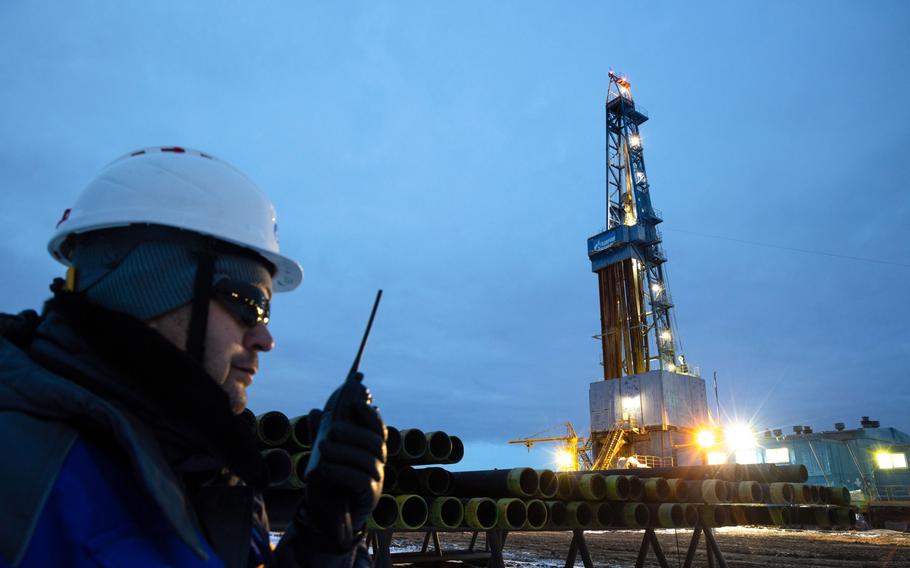The mayor of Vigo in Galicia, Spain, has already started preparing for the city’s annual Christmas extravaganza. This is in spite of the government’s attempt to reduce electricity consumption in cooperation with the European Union. Taking the lights down, the mayor argues, would hand Vladimir Putin a victory if the holiday spirit — and spending that comes with it — gets crushed by the war.
You’d think in the context of a looming energy crisis, setting up lights would rank at the bottom of the list of priorities. I love Christmas as much as anyone, I hope that this year it comes wrapped in a reality check — for everyone.
In Spain, energy-saving measures came into force last week: air conditioning will be set at 27 degree celsius (80.5 fahrenheit), shop windows will have to go black from 10 p.m. and state buildings will have to dim their lights. This has sparked acrimonious debate among the central government, regional administrations and tourist destinations like Madrid, where the nightlife only gets going after nine in the evening. It’s a microcosm of just how unprepared — emotionally and practically — Europeans in general are about what is potentially the darkest winter the Continent will experience in decades.
The right-wing head of the Madrid region, Isabel Diaz Ayuso, is a leading voice against the new rules. She famously kept the city open for business during much of the pandemic. Now, she argues conservation will destroy jobs, scare tourists and hinder public safety. She makes a couple of good points: The Spanish government rushed the measures out without consensus and without a convincing narrative to justify responding to a winter crisis in the middle of the summer. Prime Minister Pedro Sanchez’s symbolic move of going tieless during official business — to make up for shutting off air conditioning — came across as trivial. He was largely ignored.
Still, it would be silly and shortsighted for Diaz Ayuso and Madrid to go without restrictions. And the bickering goes beyond Spain’s borders. In France, President Emmanuel Macron is due to unveil a plan for “sobriété énergétique” that is virtually a clone of the Spanish measures. He is likely to encounter the same resistance. His nemesis, Marine Le Pen, argues European sanctions on Russian energy have backfired and the French will be left footing the bill this winter. With electricity wholesale costs hitting fresh highs for Paris, Le Pen is looking to sway working-class voters by presenting herself as the candidate of purchasing power.
Germany is likely to feel the brunt of the Russian winter, but Chancellor Olaf Scholz has played down fears of winter unrest voiced by the media even as the Federal Network Agency — the country’s power regulator — has called on consumers to reduce consumption and set aside money for cold weather bills. Corporations like Deutsche Bank are going further than the voluntary measures set forth by the government.
In Italy, caretaker Prime Minister Mario Draghi caused controversy by saying Italians would have to choose between blasting the air conditioning or helping Ukraine. However, no candidate is talking about it during the campaign leading up to the Sept. 25 vote. That will make the reckoning even harder (or colder) when the winter comes — and the likely reaction from an unprepared electorate even more volatile.
For months, European officials have swept any discussion under the carpet. First, they wanted to save the summer tourist season, which is a cash cow providing much of the second quarter growth for many countries. Second, governments did not want to trigger panic among consumers. It wasn’t until July that the public discourse out of Brussels and national governments began to reflect behind-closed-door concerns. It’s a little late for the reality check — which politics still keeps suppressing.
The result: Ordinary European citizens have not fully internalized the abnormality of the coming winter. The fact that dimmed lights and limited air conditioning spark such a heated debate doesn’t bode well. Come December, the fuss will all seem paltry if Russia further weaponizes energy. It is daunting simply to imagine what the effect will be on lower income families forced to choose between paying for food or heating.
By now, it is clear Putin wants to force a volte-face (about-face) on the EU and its sanctions. That will happen most efficiently with discord, distrust and misinformation among Europeans. This is not a time for petty party politics. What is required now is a sober assessment that cuts through party lines and brings about solutions. It’s getting pretty late for those reality checks.
Maria Tadeo is the European correspondent for Bloomberg Television based in Brussels where she covers politics, economics and NATO. This column does not necessarily reflect the opinion of the editorial board or Bloomberg LP and its owners.

Lights illuminate a gas drilling rig on the Gazprom Chayandinskoye oil, gas and condensate field, a resource base for the Power of Siberia gas pipeline, in the Lensk district of the Sakha Republic, Russia. (Andrey Rudakov/Bloomberg)